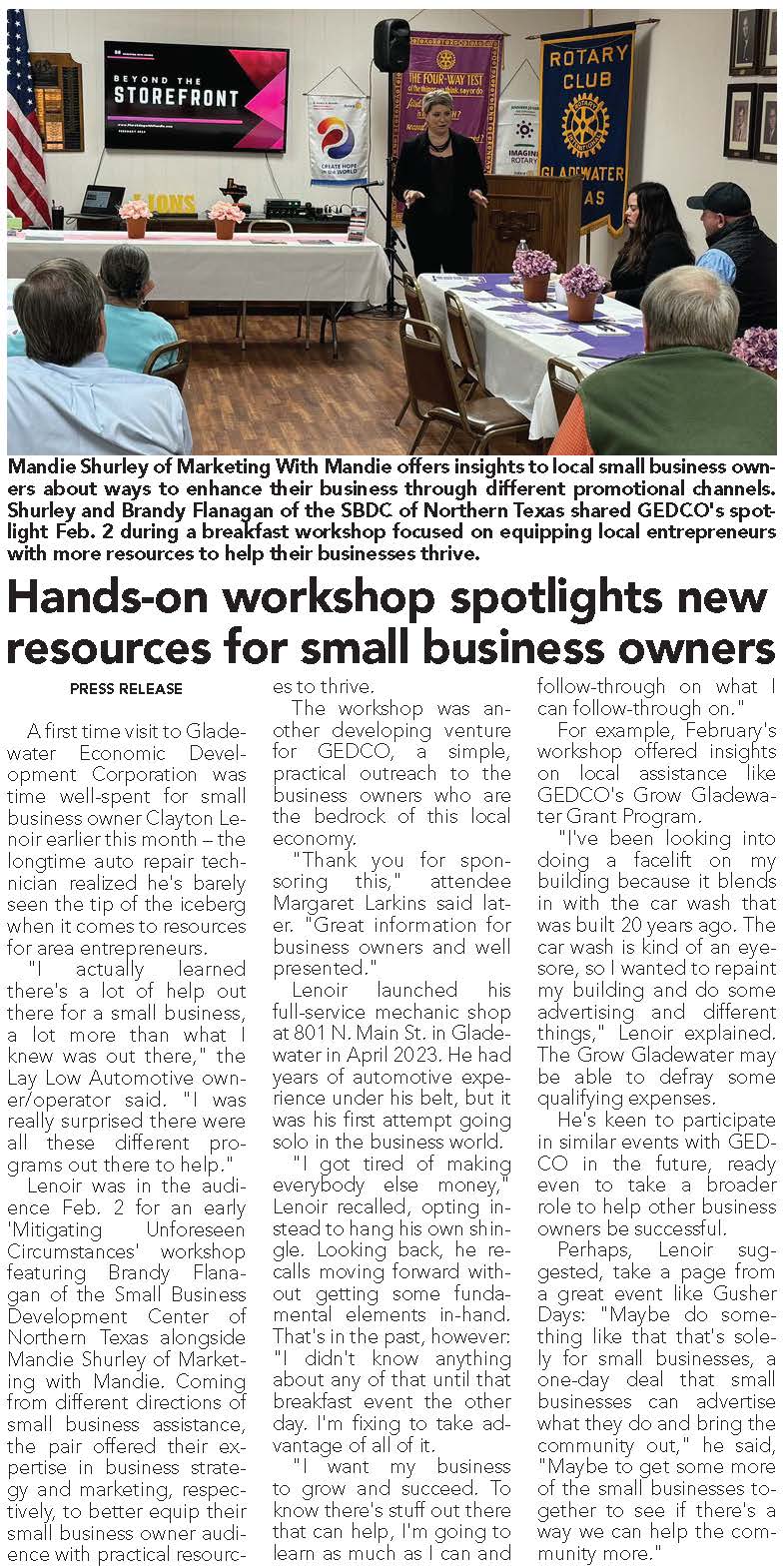
White Oak city leaders and council members review budget details in a special meeting Sept. 5 prior to a record vote to propose a tax rate of $0.64241 per $100 valuation, a 2.2 increase on the current rate. A public hearing on the rate is scheduled for Sept. 19.
White Oak’s tax rate and water charges will be increasing in coming weeks as city leaders strive to close the gap toward sustainable numbers after years of relatively low figures.
Council members have spent recent weeks and months discussing the city’s budget as well as the property taxes and water revenues that support it. On Tuesday, they finished up some of those dialogues with a unanimous record vote to propose a tax rate of $0.64241 per $100 valuation for the coming fiscal year.
Working with City Hall’s leadership and considering updated data from local tax personnel, the elected officials opted for the so-called ‘voter-approval tax rate’ Sept. 5, the highest rate the municipality may adopt without putting it to voters. It’s a 1.02 percent increase on the current tax rate for FY ’22-23 ($0.62875) and will reap more revenue relative to this year after recent countywide increases in appraised values.
Those revenues total about $2,647,000, according to White Oak City Coordinator Jimmy Purcell said.
“And if we went with that route, that’s about $23,000 short,” he told the council.
Only a couple of residents attended the Sept. 5 Special Meeting, following on a handful the week before who exchanged brief comments with the council during public hearings on the tax rate and budget (projected at about $4.1 million in the latest iteration posted at cityofwhiteoak.com).
That meeting also saw the council members reach a consensus on the city’s looming water rate increase. From their discussion, average water usage in White Oak (approximately 5,000 gallons per month) will cost about 82 percent more moving forward from this fall.
On Aug. 29, the elected officials and city workers agreed the base rate should be increased from $24.60 to $41.75. Customers will then be charged for usage per 1,000 gallons on an updated tier system with relative increases.
Currently, the adjusted water rates are scheduled to go into effect in October.
Following their end-of-August meeting, Purcell reached out to the city’s attorney to clarify how funds from White Oak Economic Development Corporation can and cannot be used, particularly how they could be employed to offset city expenses. The council had discussed dipping into reserves to cover an anticipated shortfall and also debated asking WEDCO to assist in the purchase of a VeraBank property. Purcell suggested acquiring he 2,627 square-foot building on South White Oak Road to use as a community center.
“Our city is a Type B sales tax revenue,” Purcell reminded the council Sept. 5. “They can pretty much do a lot except for when it comes to putting money together for a loss to make up. They can do just about anything else,” from buying land and buildings to paying for equipment, facilities, infrastructure, street repair, water repair, drainage, demolition…
“There’s a lot there that WEDCO can help. With that being said, I feel that the area where we’re short, by going through the budget and pulling out what has been budgeted for ’23-24, WEDCO can make up the difference.”
WEDCO’s next scheduled meeting is Sept. 12, part of the city’s overall itinerary for wrapping up financial plans for Fiscal Year 2023-2024, which begins Oct. 1. Requisite public hearings on the proposed tax rate are set for Sept. 19 before the council’s final consideration.
“Either way, whatever our deficit is, WEDCO can pick it up,” Mayor Kyle Kutch said. “No going into the reserves.”
White Oak’s reserves currently total $2,431,564, about seven months of operating costs, according to City Secretary & Finance Director Kristine Toon.
Notably, the all-but-final budget includes a requisite 15 percent increase in health insurance premiums as well as a 3 percent raise for city personnel. Property insurance and worker’s compensation costs have increased as well, Toon noted.










